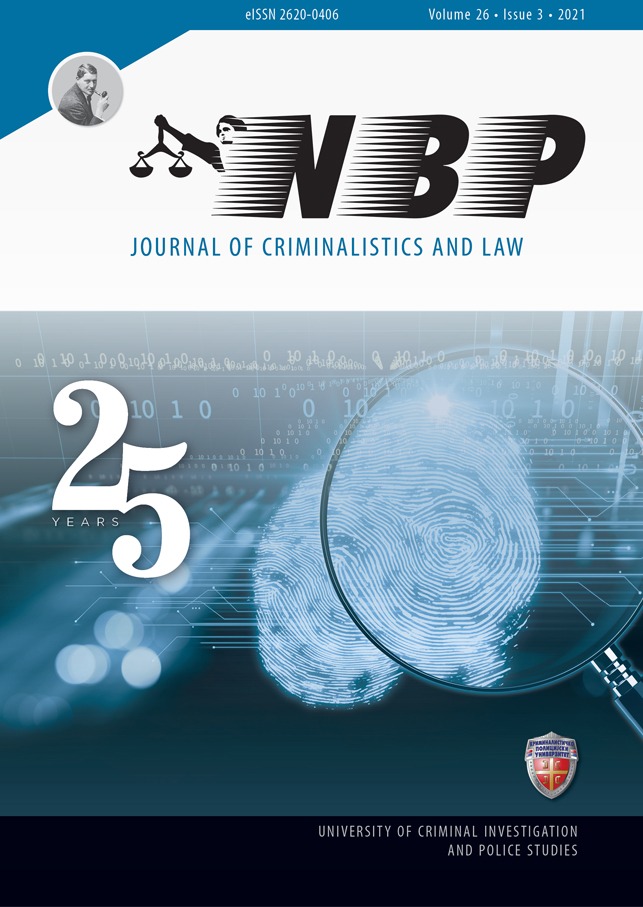ANITA's Text Analysis Services for Fighting Online Illegal Trafficking of Drugs, Weapons and False Charity Claims: A Lateral Thinking Approach
Abstract
ANITA platform aims at improving investigation capabilities of law enforcement agencies (LEAs) by delivering a set of tools and techniques to efficiently address online illegal trafficking of counterfeit/falsified medicines, NPS, drugs, and weapons with Artificial Intelligence (AI). Expert.ai has developed a dedicated written content analysis engine to support investigative activity. Already the market offers several solutions adopting AI to detect and trace illicit markets analysing web content with NLP that automatically discover hidden substances and weapons in the text analysed. In addition to the capability of deep understanding the contents, ANITA’s approach has adopted a lateral thinking approach and the supervised generation of knowledge from the analysed contents. Rather than focusing on searching for specific proper names of substances, weapons, NPS, etc. that are constantly evolving in considerable speed, we propose to concentrate on searching for precursors, namely collateral concepts related with the target of the investigation. Is the case of accessories for weapons such as sights for rifles or glass vessels used to produce the drugs themselves. This article reports the system's ability to automatically identify precursors and generate stimuli and knowledge, which the investigator must validate, that enhances the creative and intuitive approach (serendipity) to investigation combining the best of the detective’s skills with the power of AI.
References
Argamon, S., at al (2003). Style mining of electronic messages for multiple authorship discrimination: First results. Proceedings of the 9th ACM SIGKDD International Conference on Knowledge Discovery and Data Mining. Washington DC: Association for Computing Machinery, pp. 475–80.
Calvo, R. (2013). Emotions in text: dimensional and categorical models. Computational Intelligence, 29(3).
Cowie, R. (2009). Perceiving emotion: Towards a realistic understanding of the task. Philosophical Transactions of the Royal Society of London B: Biological Sciences, 364(1535), 3515–3525
Daelemans, W. (2013), Explanation in Computational Stylometry. Conference: Proceedings of the 14th international conference on Computational Linguistics and Intelligent Text Processing - Volume 2
Ekman, P. (1999). Basic emotions. In Handbook of cognition and emotion, pages 45–60.
Elbe, C. (1996). Slang and sociability: in-group language among college students (Vol. 53). University of North Carolina Press. https://doi.org/10.1017/CBO9781107415324.004
Elsahar, H. (2014). A fully automated approach for Arabic slang lexicon extraction from microblogs. In Lecture Notes in Computer Science (including subseries Lecture Notes in Artificial Intelligence and Lecture Notes in Bioinformatics) (Vol. 8403 LNCS, pp. 79–91). https://doi.org/10.1007/978-3-642-54906-9_7
Francisco, V. (2013). EmoTag: ´An Approach to Automated Mark-Up of Emotions in Texts. Computational Intelligence, 29(4):680– 721.
Grieve, J. (2007). Quantitative authorship attribution: an evaluation of techniques. Literary and Linguistic Computing, 22(3): 251–70.
Herz, J., & Bellaachia, A. (2014). The authorship of audacity: Data mining and stylometric analysis of Barack Obama speeches. In Proceedings of the International Conference on Data Mining (DMIN) (p. 1). The Steering Committee of The World Congress in Computer Science, Computer Engineering and Applied Computing (WorldComp).
Kleemans, E.R., & M.R.J. Soudijn (2017). Organised crime. In: N. Tilley and A. Sidebottom (eds). Handbook of Crime Prevention and Community Safety. Routledge (forthcoming).
Koppel, M., et al (2010). Authorship attribution in the wild. Language Resources and Evaluation. Advanced Access published January 12, 2010:10.1007/s10579-009-9111-2.
Luyckx, K., (2011). The effect of author set size and data size in authorship attribution. Literary and linguistic Computing, 26(1), 35-55.
Maio E., (2016). Lateral Thinking: The Key to Effective Deviation Investigation | IVT Network. https://www.ivtnetwork.com/article/lateral-thinking-key-effective-deviation-investigation
Mehrabian, A. (1996). Pleasure-arousal-dominance: A general framework for describing and measuring individual. Current Psychology, 15(4):505–525.
Milde, B. (2013). Crowdsourcing slang identification and transcription in twitter language. Gesellschaft Fuer Informatik eV (GI), 51.
Oakes, M. (2014) "Literary Detective Work on the Computer", in the Series “Natural Language Processing, no. 12", p. 283, Amsterdam: John Benjamins Publishing Company
Pal, R.A. (2013). Detection of Slang Words in e-Data using semi- Supervised Learning. International Journal of Artificial Intelligence & Applications (IJAIA), 4(5).
Parrott, W. G. (2001). Emotions in social psychology: Essential readings (Vol. xiv). New York, NY, US: Psychology Press.
Plutchik. R. 1980. Emotion: Theory, Research and Experience. In Theories of emotion, volume 11, page 399. Academic Press.
Russell, J.A. (1980). A circumplex model of affect. Journal of Personality and Social Psychology, 39(6):1161–1178.
Sunghwan M. K. (2011). Recognising Emotions and Sentiments in Text. Ph.D. thesis, University of Sydney.
Wang, C. (2018). Information Retrieval Technology Based on Knowledge Graph Conference. Proceedings of the 2018 3rd International Conference on Advances in Materials, Mechatronics and Civil Engineering (ICAMMCE 2018)

